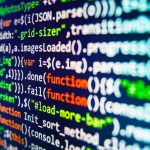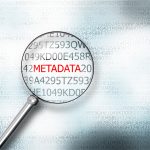Without Privacy There Is No Freedom

Whistleblower Edward Snowden’s first email to Laura Poitras reads like something from a spy novel:
“At this stage I can offer nothing more than my word. I am a senior government employee in the intelligence community. I hope you understand that contacting you is extremely high risk.
From now, know that every border you cross, every purchase you make, every call you dial, every cell phone tower you pass, friend you keep, article you write, site you visit, and subject line you type, is in the hands of a system whose reach is unlimited but whose safeguards are not.
In the end if you publish the source material, I will likely be immediately implicated. I ask only that you ensure this information makes it home to the American public.”
Ms Poitras’ investigation, which also involved security journalists Glenn Greenwald and Ewen MacAskill, led to one of the biggest intelligence scandals in history: when they revealed a network of mass surveillance, orchestrated by United States National Security Agency. For years, the Agency’s algorithm, codenamed PRISM, had been collecting the private data of tens of millions of individuals in the US and around the world, including their emails, phone calls, and browser histories.
Despite the global outcry, Australia was determined to legalise the mass-surveillance of its own population. A year later, the Abbott Government passed laws requiring internet and phone service providers (ISPs) to store the meta-data of Australian residents for a period of two years, and hand it over to a raft of government agencies without them even having to obtain a warrant.
The meta-data laws cast a wide net over what types of information must be stored, giving agencies access to:
- Telephone records,
- The time and length of phone calls,
- The internet protocol addresses (IP addresses) of computers from which messages are received or sent,
- Location of parties making phone calls,
- To and from email addresses on emails,
- Logs of visitors to chat rooms online,
- Status of chat sites – whether they are active and how many people are participating,
- Chat aliases or identifiers (the name a person uses in a chat room online),
- Start and finish times of internet sessions,
- The location of an individual involved in communications, and
- The name of the application someone uses online and when, where and for how long used.
Many are concerned that – as ISPs are now storing all data, rather than spending extra millions to separate it – law enforcement agencies are in practice able to access content as well as meta-data.
Nothing to Hide, But Everything to Fear
It is easy to understand why some Australian’s aren’t too concerned about meta-data; many feel that law-abiding citizens won’t be targeted. However, when other recent legislative changes are taken into account, it’s easy to see how these powers can be abused, and can impact upon an individual’s freedom to express and discuss views that are contrary to what the State wants to hear.
Along with legalising mass surveillance, successive Australian Governments have used the ‘War on Terror’ as an excuse to chip away at our basic freedoms – including our freedoms of speech, association, and privacy.
There is now greater potential than ever that Government agencies could target, or even criminally prosecute, activists and journalists for ‘speaking out’ about various subjects.
For example, the Defence Trade Controls Act, which came into force last year, now prevents anyone who works (or worked) at a detention centre from speaking out against abuses they see (or saw) taking place. Similarly, anyone arrested during an ‘anti terrorism’ raid is prohibited from speaking out about it, even if those raids turned out to be unfounded. These laws also cover journalists, who can be sent to prison for reporting on counter-terrorism operations, offshore boat operations and human rights abuses in detention centres.
Giving Government agencies access to personal information makes tracking potential whistleblowers that much easier, impacting upon the freedom of individuals and the press to speak and report freely.
Attorney-General George Brandis has stressed that data collection is being used to “identify suspects and networks of criminal associates” in order to “fight against terrorism, child pornography and serious crime”. However, a look at how the data has been used so far casts doubt on this claim.
Uses of Data So Far
Earlier this year, it was revealed that over 60 Government agencies had applied to Brandis for data access. The list includes the Australian Taxation Office, Department of Human Services, and even Bankstown Council – hardly those on the forefront of the fight against terrorism and child pornography.
A Bankstown Council spokesperson told the Sydney Morning Herald that it used the data to catch residents who dumped waste illegally. The agency made 13 information requests in the year to June 2015.
There was a similar outcry earlier last year when it was revealed the New South Wales Government was giving Government agencies warrantless access to travellers’ Opal Card Data. Electronic Frontiers Australia executive director Jon Lawrence pointed out that such matters are”hardly a national security issue”.
In another episode, it was revealed last year that officials of the Queensland Police Force had begun accessing the private data of cadets to determine whether they were sleeping with one another or faking sick days. This access was labelled by the state’s police union as “disturbing” and “potentially unlawful”.
These wide-ranging, and often trivial, uses show just how much the collection of data can threaten individual privacy, which in turn limits the freedom of individuals to communicate and express themselves without fear of targeting and persecution.
In 2012, Victoria’s then acting Privacy Commissioner Anthony Bendall dubbed data retention as “characteristic of a police state”, arguing “it is premised on the assumption that all citizens should be monitored”.
The documentary Citizenfour, the result of Ms Poitras’ investigation into Snowden’s leaks, revealed a more sinister aspect of this surveillance culture.
“Even if you’re not doing anything wrong, you’re being watched and recorded,” Snowden says.
“It’s getting to the point you don’t have to have done anything wrong, you simply have to eventually fall under suspicion from somebody, even by a wrong call, and then they can use this system to go back in time and scrutinize every decision you’ve ever made, every friend you’ve ever discussed something with, and attack you on that basis, to sort of derive suspicion from an innocent life and paint anyone in the context of a wrongdoer… The public needs to decide whether these programs and policies are right or wrong.”
Leichhardt Council Bans Meta-Data Use in Council Investigations
At least one Sydney council has bucked the trend, passing a provision to ban the use of meta-data in its investigations. On April 12, Leichardt Council voted to “rule out the use of metadata for compliance or any other council purpose.”
The move followed a report commissioned last year by Mayor Darcy Byrne, who voiced concern about councils being able to access data, warning its use could lead to Councils “spying on residents.”
“Australian Councils are increasingly accessing metadata in order to determine information about who their residents are speaking to and to pinpoint their location at certain times,” Byrne told City Hub.
“Whilst these requests so far seem to have been restricted largely to assisting prosecutions – primarily environmental breaches – the increase in use does point to a concerning prospect for the abuse of this power, tantamount to spying on residents.”
“The civil liberty of our residents must be protected, as must their basic human right to privacy,” he said.
With State and Federal Governments unwilling to take action on this issue, there are valid concerns that government bodies will misuse their unprecedented access to personal data into the future, turning ordinary people into suspects.






